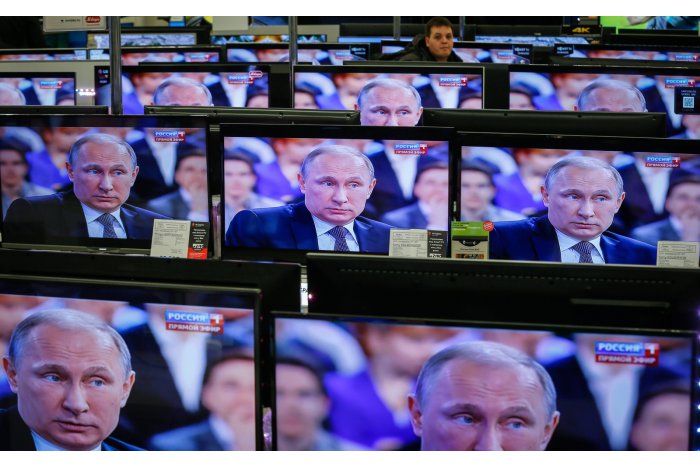US Report: European countries have retaliated against Russia’s interference
The adoption of the anti-propaganda law is, along with the efforts to restore Moldova’s control over the eastern border, a reasonable and prompt response to the hybrid war against our country, with visible components and disastrous effects. We can mention the encouragement and economic and military support for the secessionist territory, the direct involvement of the 14th Army in the war for Moldova’s independence and territorial integrity; discouraging the process of integrating national minorities into Moldovan society and boosting Soviet nostalgia; imposing economic sanctions with a clearly political tinge; permanent discreditation of the fundamental values of European civilization: the rule of law, separation of powers, free elections, functional market economy, etc; interference in political exercises, including elections at all levels; involvement of the structures of the Russian Patriarchate in the electoral process and the constant criticism of the European model of development, a fact noted by the Constitutional Court of Moldova; misinformation, manipulation and propaganda through the media and social networks; discrediting pro-European governments; fostering sense of fear and distrust in the future among citizens.
All these elements are visible, undeniable and undermine the efforts to build a democratic and developed state. Most European states have realized the enormous dangers of hybrid war and, in particular, most effective component – the informational war. In this context, we reproduce sequences from the report by Democratic members of the US Senate Foreign Relations Committee on EU measures to counter Russian information war.
“More than 20 years ago, Vladimir Putin gained and strengthened power by exploiting blackmail, fears of terrorism and war. Since then, the Russian leader has combined the military adventurousness and aggression abroad with propaganda and domestic political repression to convince the domestic public that he will restore Russia’s magnificence and respected position on the world stage. Vladimir Putin has given power to security services and has used them to strengthen their political, social and economic control (...)", the report “Vladimir Putin’s asymmetric attack on democracy in Russia and Europe: Implications for US National Security” says.
Democratic systems, such as the United States and the nations of Europe, are considered challenges by Putin, as “they are attractive alternatives to the corrupt and criminal system”, and that countries with transparent governance, rule of law and free media are more resistant to corruption spread outside Russia, the report said. “Therefore, Putin has set as a priority of his regime attacking democracies in Europe and the USA and undermining NATO, which, for over 70 years, the peace and prosperity of Europe depends on. The Russian leader has used security services, media, public and private companies, organized crime groups, social and religious organizations for misinformation, influencing elections, fueling corruption, threat to energy security (...)", the document says.
The report notes that the EU and NATO have taken steps to counter Russia’s interference. “Some non-governmental organizations and research institutes have launched regional programs to counteract misinformation (...)". An effort of this kind is “Information Warfare Initiative, administered by the Center for European Policy Analysis (CEPA), an American institute with subsidiaries in Europe. The program monitors the content and techniques for misinformation used on Belarus, Estonia, Latvia, Lithuania, Poland and Romania”, the report reads.
“European countries opposed the Nord Stream 2 pipeline project, which could make Europe more dependent on Russian energy resources. In the summer of 2016, the leaders of Croatia, the Czech Republic, Estonia, Hungary, Latvia, Lithuania, Poland, Slovakia and Romania sent a letter to the President of the European Commission expressing their concern that this project could generate “destabilizing geopolitical consequences” and “would present certain risks to energy security”, especially, by increasing the dependence of the Central and Eastern European countries on Russian gas”, the report said.
Russia has had operations to influence electoral campaigns in 19 European states, the document said, accusing Kremlin of launching “an intense attack to undermine democracy and the rule of law in Europe and the United States”. Among European countries targeted by Russian interference – cyber attacks, misinformation campaigns, corruption, assassination attempts and military operations, the report mentions Ukraine and Georgia. “Asymmetric attacks on democracy” to influence election results were also launched on Great Britain, France and Germany. These countries, along with Finland and Estonia, have reacted quickly and effectively to Russia’s actions, the report said.

